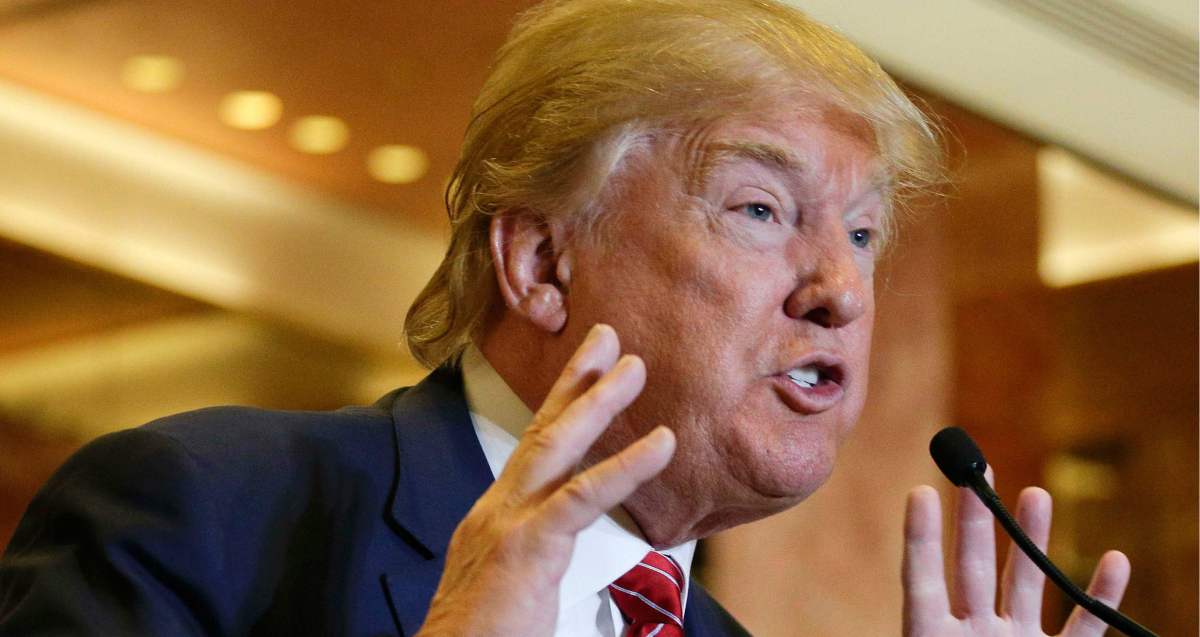Support strong Canadian climate journalism for 2025
U.S. president-elect Donald Trump's promise to ramp up energy production soon after he takes office is raising concern in Alberta's oilpatch, where several industry groups say such a move could set Canada back in its ability to compete for investment.
In a video posted Monday on YouTube, Trump committed to cancelling "job-killing restrictions on the production of American energy, including shale energy and clean coal" within his first 100 days of power.
While his message lacked specifics, it has caught the attention of oil and gas groups north of the border.
"What we saw last night, I think, was a reaffirmation that the new administration wants to make energy a centrepiece of the economic rejuvenation of the U.S.," said Tim McMillan, president of the Canadian Association of Petroleum Producers.
"I think it's a bit of a call to action to us as Canadians."
President Mark Scholz of the Canadian Association of Oilwell Drilling Contractors said Trump's vow could spell bad news for his members.
Scholz said Trump's push to open U.S. federal lands to more drilling could divert investment away from Canada to the U.S. and exacerbate a glut of American oil and gas production, which has already been partly blamed for lower commodity prices.
"If I was a U.S. driller, I would be very optimistic about the prospects of greater activity in the United States," said Scholz.
"(Trump) has talked about lower business taxes, he has talked about reducing regulations and no doubt that is going to have an impact on our forecast on Canada's prospects."
Earlier in the day, Scholz's association released a report forecasting that 4,665 oil and gas wells would be drilled next year, a 31 per cent increase from the 3,562 wells expected to be drilled this year. But Scholz said that was based on information collected before the U.S. election and the forecast would have been "tempered" had it been known Trump was going to win.
Nonetheless, the number of wells projected for next year would be less than half of the 11,226 that were drilled in 2014, according to the association.
Gary Leach, president of the Explorers and Producers Association of Canada, agreed Canada must improve its competitive footing compared with the U.S. to attract investment.
"From what we know about Trump's agenda, we think the U.S. is now going to be a more formidable competitor to draw capital," he said.
Leach, Scholz and McMillan all said Trump's comments reinforce their view that Canada needs more pipelines, such as the Trans Mountain expansion to B.C. and Energy East to New Brunswick, to access new markets.
There was one Trump promise, however, that they said would be a lift to Canada's oil industry: his commitment to approve the Keystone XL pipeline, which would ship more barrels of crude to the U.S. Gulf Coast, where they would fetch better prices.




Comments
The Canadian tarsand industry owes it's existence to people continuing to swallow their delusional Kool-Aid and ignore reality. Facts: The world has a glut of oil being produced. OPEC increased production to kill whatever competition they could and because their oil is far better quality and cheaper to produce, they are making money. Alberta has the worst quality and highest costs to produce, so it sells much cheaper - they are in business thanks to the many billions every year from taxpayers. Iran is now allowed to sell to the world again and they plan to sell as much as possible, which will drop prices further. The US has increased it's own production so much it hardly needs our crappy product - which drops prices further. The obsession with pipelines to the coast is another boondoggle, since Asian countries have far better options closer to home. Even the US doesn't need (and citizens don't want) KXL, but it is being pushed because of the $$$ to be made from companies already locked into shipping contracts. Whether it would even be built once costs have been updated to current realities is unknown, especially since shippers can cancel their contracts if the costs go over a certain amount. Even Donald Trump is modifying his tune on many issues recently - so he may actually be learning about the reality of the country he's about to govern. *Crossing fingers*